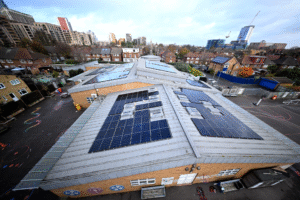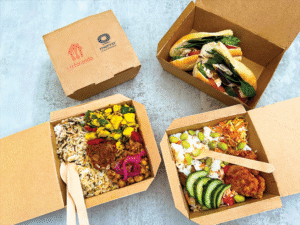Material Focus, a not-for-profit organisation on a mission to liberate electrical equipment from the back of cupboards and keep them out of skips, have launched a campaign to promote this message called Recycle Your Electricals.
The campaign is funded by producers of electrical appliances with the aim of supporting actions that will help the UK increase the levels of reuse and recycling of waste electricals.
Specifically aiming at those kitchen items we once thought were a good idea but haven’t used for a long time, they have produced a top 20 of forgotten kitchen ‘FadTech’ as they call it, calling out the most misguided purchases over the last couple of decades.
The list ranks items on the likelihood of being never/rarely used x popularity of the item. It lets us know when the fad was at its peak (via the number of Google searches) and estimates how many of the time there are in British cupboards.
Top of the table is last year’s big fad, ice cream maker, 780,128 of which are believed to be gathering dust. We need to go back to 2005 for the second placed bit of kit, the chocolate fountain. The most commonly owned item is the toastie maker with 1,785,038 units in the UK but its low position on the table suggests the compilers felt many are still being used.
Other classic single-function kitchen items in the table include the bread maker, popcorn machine, electric plate warmer and the spiralizer.
The report adds that most UK households have at least four items of FadTech, while 14% of households own eight or more.
An impressive 14% of adults say they own a teasmade but have never used it while spiralizers (10%), chocolate fountains (9%), hostess trollies (8%) and onion choppers (7%) also seem to fall into the category of misguided Christmas presents.
Recycle Your Electricals give examples of the precious, recyclable materials that van be found in such forgotten product:
Ice cream maker: Stainless steel, plastic, aluminium, copper
Chocolate fountain: Stainless steel, plastic, copper
Hostess trolley: Stainless steel, aluminium, glass
Popcorn machine: Stainless steel, aluminium, tempered glass
Bread maker: Plastic, stainless steel, aluminium, ceramic
Electric spiralizer: Stainless steel, plastic, aluminium
Waffle maker: Stainless steel, aluminium, ceramic
Juicer: Stainless steel, plastic, aluminium, ceramic
Scott Butler, Executive Director, Recycle Your Electricals campaign, say: ‘We’ve all fallen for the latest FadTech – including me – and sometimes they become kitchen staples. But, often, after taking up counter space they’re consigned to a cupboard. They’re not cheap, so it can feel wasteful to clear them out but they can be recycled into something really useful or donated if they’re still in good condition. If you have FadTech to recycle, the easiest thing to do is visit our postcode locator to find your nearest drop-off point.’















